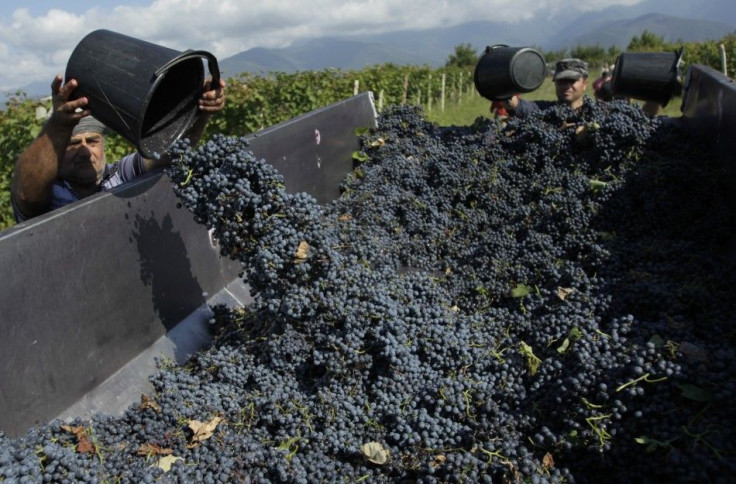China's Palate Ripens for European Vineyards, Chateaux

Chinese state-owned firms, private corporations and wealthy individuals are buying European vineyards as they look to capitalize on a growing domestic thirst for foreign wine.
Demand for French, Italian and Spanish wines has boomed in the world's second largest economy over the last few years, bolstered by the growth of China's super-rich and burgeoning middle class, who are knocking back the vino and the vin in record quantities.
David Guillon, of IFL, a Hong Kong based firm that sells French vineyards, castles and luxury properties, said IFL completed six multi-million euro (dollar) transactions of vineyards in France's Bordeaux region with Chinese investors in 2011, including state-owned grain trading giant COFCO. He expects this number could double in the coming year.
IFL is currently in close negotiations with two major state-owned companies, multiple private firms as well as Chinese celebrities and football players.
The demand is getting very huge and it has been a very rapid evolution, said Guillon, adding that 80 percent of IFL's buyers in Asia come from Hong Kong and China.
For the state-owned companies, these firms can be conglomerates which have nothing to do with the wine industry, hold a large amount of cash and want steady returns, he said.
While global wine prices have softened from skyrocketing levels set in the last two years, private auction house Christie's sold all lots at its February wine sale in Hong Kong, fetching results that were more than triple pre-sale estimates.
In a testament to the strength of Chinese drinkers, the country usurped the United Kingdom as the world's fifth largest wine-consuming nation at the end of 2011 and is forecast to grow to nearly 250 million cases by 2016, according to International Wine & Spirit Research.
Cash-rich Chinese investors are keen to profit from the country's growing love of wine -- imports of Bordeaux wines and consumption in the middle kingdom soared 110 percent in 2011 -- by transforming chateaux into luxury resorts complete with Chinese restaurants, golf courses and French gardens.
French vineyards can range widely in price, Guillon said, pricing the 400-500 chateaux available for sale between 2-500 million euros.
Chinese investors have tended to buy smaller ticket vineyards in the range of 2-10 million euros, as opposed to institutional European and private investors who buy properties worth over 100 million euros, he said. But he expects Chinese buyers to rapidly move into a higher price range of 10-30 million euros in the coming year.
COFCO bought the 21-hectare Chateau de Viaud for 10 million euros, while Chinese jeweller Tesiro, Longhai International Trading and H.K. A+A International Holding all bought vineyards priced between 2-6 million euros last year.
CHINESE BETTER POSITIONED
Wine industry analysts say Chinese buyers are better positioned to tap their own connections in building a lucrative sales distribution within China, a crucial advantage that foreign wine producers are not as privy to.
Ignoring for a second the fact that owning a Bordeaux chateau is prestigious for just about anyone means you can set any price and by extension, perceived value for the wine in question, said Aubrey Buckingham, marketing manager at Hewitson, one of Australia's main wineries based in Adelaide.
Some investors opt for foreign distributors such as retired NBA basketball star Yao Ming, who started his own Napa Valley based Yao Family Wines and distributes his own Cabernet Sauvignon to China through Pernod Ricard.
As well as Chinese sports stars, film and pop icons are also buying up vineyards with popular mainland actress Zhao Wei buying a 4 million euro Bordeaux chateau at the end of 2011, according to local media.
French residents welcome Chinese and Asian investors buying up acres of traditional vineyards and palaces, say industry experts, as the new money helps to improve the vineyard and wine-making facilities and results in better quality wine.
Charles Curtis, Christie's Head of Wine in Asia, also sees the trend moving forward.
Christie's Asian clients are progressing rapidly in their love and connoisseurship of wine. As they do so, it is entirely natural that they would want to capture a piece of the dream. Most people who visit wine country want to stay.
Curtis added that even if the wine production itself did not yield a large return on investment, the attendant investments in real estate could be very remunerative.
© Copyright Thomson Reuters 2024. All rights reserved.











